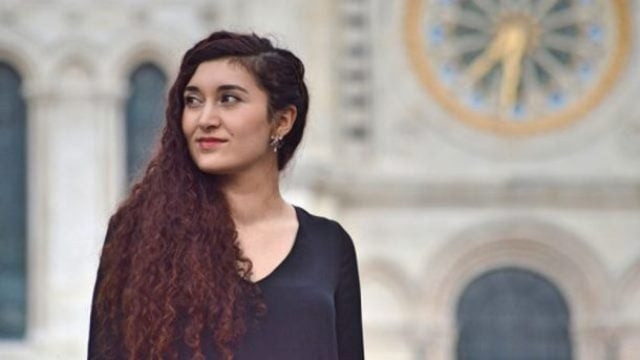From slum-dweller to senator? French Roma woman aims high
If elected, Ciuciu says she does not want to be "the token Roma" in the French Senate but a symbol

If elected, Ciuciu says she does not want to be "the token Roma" in the French Senate but a symbol. PHOTO: AFP
Ciuciu says she wants to "pave the way" for other Roma, a minority who have long been marginalised in France where some 20,000 of them live in hundreds of shantytowns around the country.
"I was a beggar, I was constantly humiliated," Ciuciu told AFP. "My story shows that anything is possible."
Ciuciu was seven when she and her family left post-Communist Romania at the height of an economic crisis.
Her accountant father, mother and their three daughters crossed the former Yugoslavia on foot at a time when the fields were still strewn with mines laid during the Balkan wars, eventually making it to Rome.
"We risked our lives like today's migrants are doing," Ciuciu said.
The family endured six months in squalid conditions in a huge refugee camp on the outskirts of Rome before heading to France.
"My father wanted to give us a future in the land of human rights," said Ciuciu, who has waist-long curly dark hair.
Modi appoints India's first female defence minister
But in France, the family was refused asylum, and they resorted to begging.
One day in Bourg-en-Bresse, a town near the eastern city of Lyon, an encounter with a schoolteacher changed the course of their lives.
Jacqueline de la Fontaine took them under her wing, helping them to fulfil their dream of enrolling the girls in school.
Ciuciu, described by the teacher as determined and gifted, learned French and graduated from high school with top marks, before entering Paris's prestigious Sorbonne university to study law.
In 2013, she wrote a book called: "Je Suis Tzigane et Je le Reste" which loosely translates as "I'm a gypsy for good" in a move that she says helped her obtain French nationality. So far, she is the only member of her family to do so.
Muslims caught in Austrian election crossfire
If elected, she says she does not want to be "the token Roma" in the French Senate but a symbol.
"It would be historic for a young French woman of Roma origin to be elected, especially in the Senate, which is mostly made up of men and where the average age is 64!"
A total of 171 of the 348 seats are up grabs in the Sunday's ballot when elected lawmakers -- parliamentarians, mayors, local councillors -- cast ballots for the upper house.
But Ciuciu's chances of winning are thought to be slim as she is a candidate for the small leftist Notre Avenir (Our Future) party, and larger parties hold the advantage.
Pierre Chopinaud, who heads Roma advocacy group Voix des Rroms, said Ciuciu's candidacy was "very late" for France, noting that there are already Roma lawmakers in central European countries and in Sweden.
"But it is the beginning of something," he said.



















COMMENTS
Comments are moderated and generally will be posted if they are on-topic and not abusive.
For more information, please see our Comments FAQ